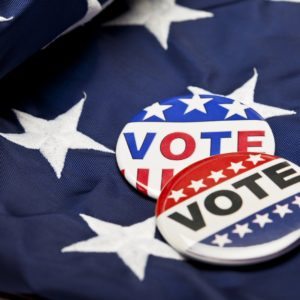Here’s the scenario:
It’s November 2020. President Donald Trump is locked in a political struggle with Democratic POTUS nominee Liz Warren. In a razor-thin race, both campaigns were thrown into chaos when a bipartisan ticket of John Kasich and Kanye West launches an independent bid.
Trump holds onto his 43 percent of the popular vote, finishing in first place. But he loses New Hampshire and its key four Electoral College votes—just enough to make Liz Warren president.
Except—they don’t. Because (in this scenario) in 2019, New Hampshire’s Democratic-controlled legislature joined about 20 other states in an agreement to give its Electoral College votes to whichever candidate won the national popular vote. And so, with the votes—but not support–of the people of New Hampshire, Donald Trump is sworn in for a second term.
Hey—it could happen. Even the Kanye part.
This weekend the Connecticut General Assembly voted to become the 11th state—plus DC—to join “The Agreement Among the States to Elect the President by National Popular Vote.” Connecticut is committing to cast its electoral votes for the candidate who wins the most popular votes nationwide, regardless of which candidate wins their state.
The compact only kicks in when states that control at least 270 electoral votes—enough to pick the president—sign up.
And a group of New Hampshire Democrats wants the Granite State to get on board, too.
“We must ensure that each person’s vote is counted equally,” NH State Rep. Mindi Messmer told NHJournal. “[Presidential] elections should be based on the popular vote.”
Messmer, a candidate for the Democratic nomination in the NH First Congressional District race, supported a house bill last year to put the Granite State in the compact. The bill was defeated in a largely party-line vote, with Democrats like Messmer and Rep. Mark Mackenzie—another candidate in the race to replace retiring Rep. Carol Shea-Porter–voting to keep it alive.
(Rep. Mackenzie did not respond to requests for comment)
Shea-Porter raised the issue herself when she cast her Electoral College ballot for Hillary Clinton as an elector in 2016:
“Now think that [Hillary] did win the popular vote. And the popular vote (margin of victory) is the size of two of the state of New Hampshire. Two. We need to address this,” Shea-Porter said.
“This is a very short-sighted view for a small state like New Hampshire” says Josiah Peterson, debate coach at The King’s College in New York and author of The Electoral College: Critical To Our Republic.
“The only reason presidential candidates campaign in small states like New Hampshire is because of the Electoral College. In 2016, Donald Trump came to New Hampshire on the last day of the race, along with big states like Michigan and Florida. That won’t happen again if you end the Electoral College,” Peterson told NHJournal.
The National Popular Vote effort would seem to benefit big states, and yet four of the six relatively small New England states—Connecticut, Massachusetts, Vermont and (America’s smallest state) Rhode Island—are already on board.
The other states are California, Hawaii, Illinois, Maryland, New Jersey, New York and Washington state, plus DC.
What do these states have in common? None of them have backed a Republican president since 1988. This adds to the argument that partisan politics is the primary motive behind this effort, as does the fact that the National Popular Vote effort is bankrolled by “John Koza—a California Democrat who made his fortune by inventing the scratch-off lottery ticket,” according to Politico.com.
Does a small, purple state like New Hampshire want to be part of a partisan effort to reduce the influence of its own state’s voters in picking a president? And what about the risk the compact effort poses to New Hampshire’s “First-in-the-Nation” primary?
“If the only thing that matters is appealing to the most people, no matter where they are, why would you have your first primary in New Hampshire? Or Iowa?” Peterson asks.
“You’d want to have primaries in states with lots of large cities. You’d have a primary in Ohio, or you’d go to Florida, or California. You’d go where the population is.”
“Abandoning the Electoral College system would run roughshod over the interests and idiosyncrasies of smaller states like New Hampshire,” Peterson says. And possibly the #FITN primary, too.
So why do so many New Hampshire Democrats support it?

